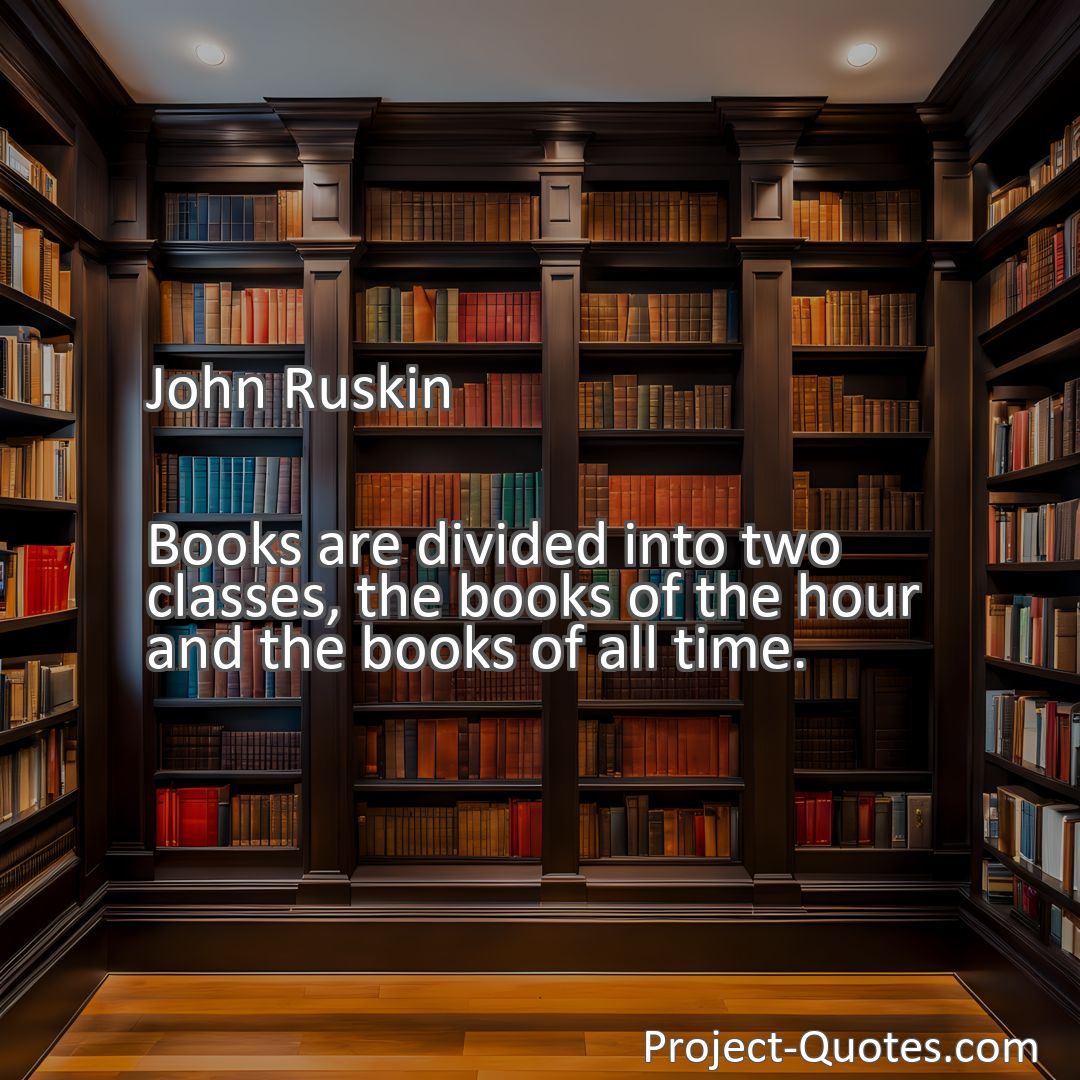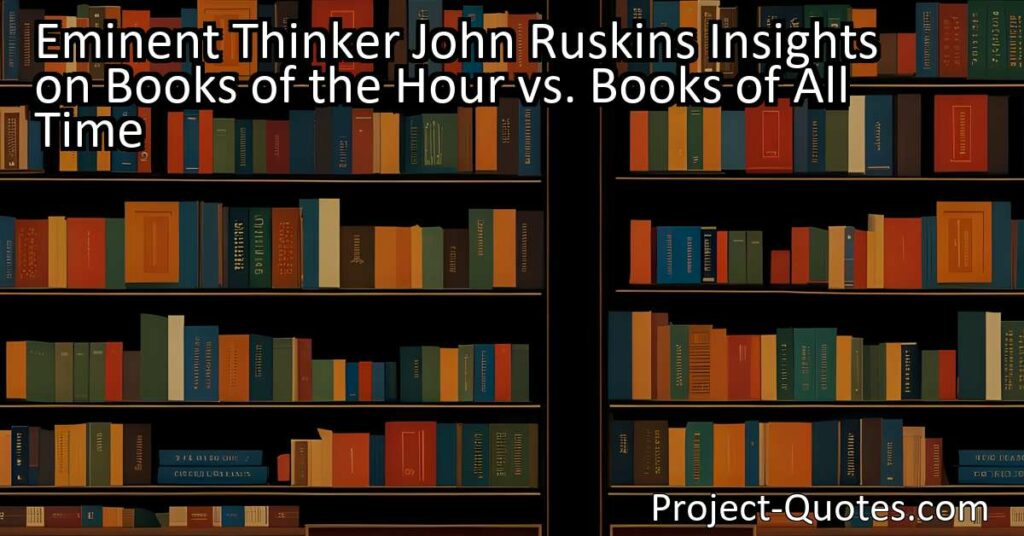Books are divided into two classes, the books of the hour and the books of all time.
John Ruskin
Eminent Thinker John Ruskin’s Insights on Books of the Hour vs. Books of All Time Journey into the world of literature as we explore the wise words of eminent thinker John Ruskin. Discover the distinguishments between books of the hour, which captivate readers temporarily and reflect the present, and books of all time, the enduring classics that resonate across generations and shape our perspectives. Embrace both types, for they both have a vital role in our literary journey.
Table of Contents
Meaning of Quote – Books are divided into two classes, the books of the hour and the books of all time.
In the world of literature, there exists a vast array of books that cater to different tastes, interests, and purposes. Some books quickly come into the limelight, capturing the attention of the masses for a brief period, while others stand the test of time, leaving a lasting impact on generations to come. As the eminent thinker John Ruskin once said, “Books are divided into two classes, the books of the hour and the books of all time.” This profound statement invites us to explore the distinctions between these two types of books and understand the significance they hold in shaping our literary landscape.
Firstly, let us delve into the realm of the “books of the hour.” These are the books that temporarily monopolize the attention of readers, often driven by contemporary trends, popular themes, or sensationalized narratives. They may capture the zeitgeist, spotlighting current events, social issues, or cultural phenomena that strike a chord with the public. These books are usually found on bestseller lists, dominating the shelves of bookstores and captivating the headlines of literary discussions.
However, the transient nature of the books of the hour should not undermine their importance. They serve as a reflection of the present, providing a snapshot of society’s interests and concerns at a given moment in time. Such books can be a source of entertainment, offering readers an escape from everyday life. They transport us to different worlds, introduce us to captivating characters, and immerse us in thrilling plots. These books can be enjoyable and engrossing, allowing us to unwind and temporarily detach ourselves from reality.
The books of the hour also have the power to serve as a catalyst for conversations and debates. They provoke discussions among readers, sparking critical thinking and encouraging a deeper exploration of various themes and ideas. By tapping into the collective consciousness of society, these books can shed light on pressing issues and inspire individuals to take action.
However, it is the books of all time that truly leave an indelible mark on the literary landscape. These are the enduring classics, the priceless gems that stand strong against the test of time, resonating with readers across generations. Unlike the books of the hour, these timeless pieces possess a universal quality that transcends the boundaries of time, culture, and societal changes.
The books of all time have the capacity to touch the depths of our souls, speaking to the essence of what it means to be human. Through their profound insights, rich character development, and intricate storytelling, they offer us a glimpse into the complexity of human nature. These books often tackle enduring themes such as love, loss, ambition, morality, and the meaning of life. They invite us to contemplate not just the world around us but also our own existence.
Moreover, the books of all time have the power to shape our perspectives, broaden our horizons, and ignite our imagination. They possess a certain timeless wisdom that extends far beyond the era in which they were written. These books can challenge our preconceived notions, push us out of our comfort zones, and compel us to view the world through a different lens. They have the ability to inspire empathy, foster understanding, and encourage personal growth.
Classic pieces of literature like “Pride and Prejudice” by Jane Austen, “To Kill a Mockingbird” by Harper Lee, or “1984” by George Orwell continue to captivate readers and remain relevant in our modern era. These books not only provide insight into the social and historical contexts in which they were conceived but also speak to the timeless struggles and dilemmas faced by humanity. They remind us of the power of storytelling and the enduring value of literature as a vehicle for truth, beauty, and introspection.
It is important to note that the distinction between the books of the hour and the books of all time is not unyielding. Some books, initially categorized as books of the hour, manage to transcend their temporal limitations and become timeless classics. As readers, it is essential to remain open to both categories, as each has its own merits and contributions to our literary tapestry.
Ultimately, the diversity of books available to us is a testament to the richness of human creativity, imagination, and expression. Whether we seek solace in the books of the hour or seek enlightenment in the books of all time, both have the power to foster a love of reading, expand our knowledge, and nourish our souls. So let us embrace the books that seize the moment and the books that endure through the ages, for both have a vital role to play in our literary journey.
I hope this quote inspired image brings you hope and peace. Share it with someone who needs it today!


